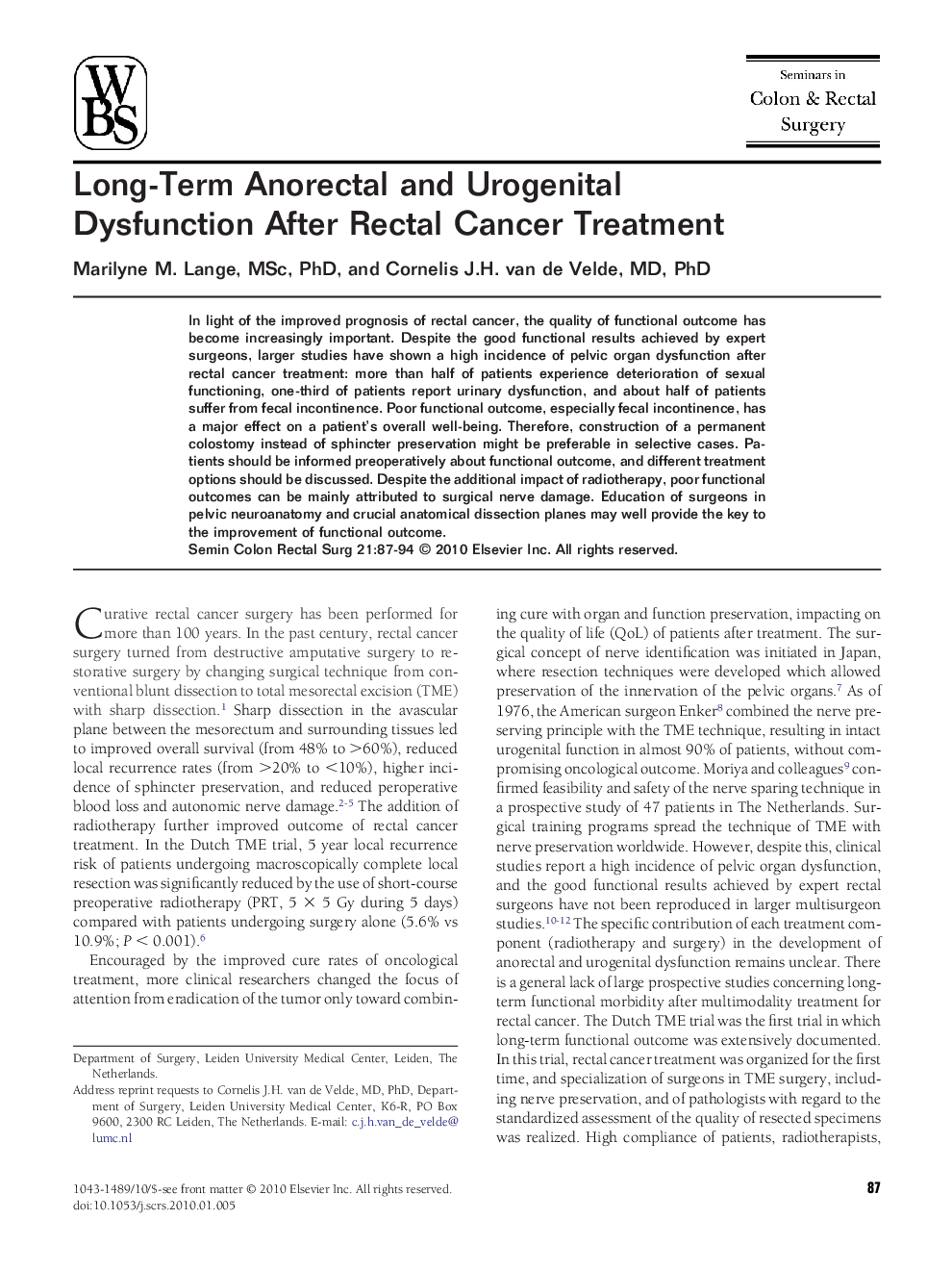| Article ID | Journal | Published Year | Pages | File Type |
|---|---|---|---|---|
| 3319443 | Seminars in Colon and Rectal Surgery | 2010 | 8 Pages |
Abstract
In light of the improved prognosis of rectal cancer, the quality of functional outcome has become increasingly important. Despite the good functional results achieved by expert surgeons, larger studies have shown a high incidence of pelvic organ dysfunction after rectal cancer treatment: more than half of patients experience deterioration of sexual functioning, one-third of patients report urinary dysfunction, and about half of patients suffer from fecal incontinence. Poor functional outcome, especially fecal incontinence, has a major effect on a patient's overall well-being. Therefore, construction of a permanent colostomy instead of sphincter preservation might be preferable in selective cases. Patients should be informed preoperatively about functional outcome, and different treatment options should be discussed. Despite the additional impact of radiotherapy, poor functional outcomes can be mainly attributed to surgical nerve damage. Education of surgeons in pelvic neuroanatomy and crucial anatomical dissection planes may well provide the key to the improvement of functional outcome.
Related Topics
Health Sciences
Medicine and Dentistry
Gastroenterology
Authors
Marilyne M. MSc, PhD, Cornelis J.H. MD, PhD,
